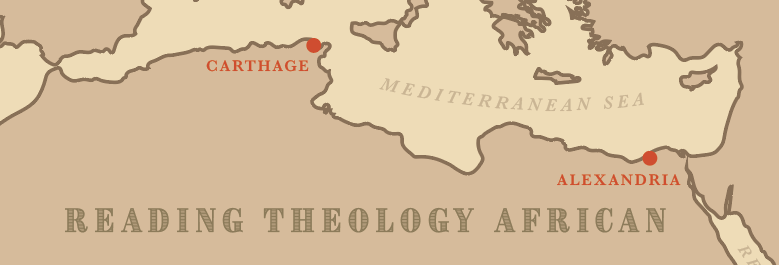 For years we’ve read Tertullian’s classic second-century Apology in the Torrey Honors Institute, and I’ve always appreciated this feisty church father’s sarcasm and rhetorical power. Even when he’s arguing from the position of the underdog, Tertullian is not somebody you’d want to be cross-examined by.
For years we’ve read Tertullian’s classic second-century Apology in the Torrey Honors Institute, and I’ve always appreciated this feisty church father’s sarcasm and rhetorical power. Even when he’s arguing from the position of the underdog, Tertullian is not somebody you’d want to be cross-examined by.
But recently, as part of the Reading Theology African initiative, I’ve been racking my brain trying to figure out what’s African about the writings of this lawyer from Carthage. I’ve been through the text many times, with and without students, and it just seems to me that Tertullian is so intent on demonstrating how generically Roman he is that it’s hard to tell which province he’s from, or whether that matters to him.
So I asked somebody who knows: David Wilhite, author of both Tertullian the African (2007) and Ancient African Christianity (2017). Long story short, if you want to see Tertullian strutting his African stuff, you shouldn’t just read the Apology. Instead, Dr. Wilhite recommended, read To the Nations / Ad Nationes, in which Tertullian makes many of the same points in defense of Christians, but makes them with the twist of sometimes depicting Romans as a common antagonist to both the Christians and the North Africans. Or, more precisely, he subdivides North Africa itself into the old Africans on the one hand (who might still resent the conquest of Carthage, and think of Aeneas as an invader rather than as a father figure), and a new elite on the other hand (who have gone fully Roman and embraced the power that comes with that social identification). In Wilhite’s 2007 book, he offers a reading of Tertullian’s apologetic works which
interprets Tertullian as a part of the Christian trend in ancient North Africa which perceives outsiders in terms of the “world” that has not accepted Christ as Lord, which simultaneously allows Tertullian to understand himself as an indigenous African rejecting the Roman colonizers as puppets of the devil as well as denouncing the pursuits of the new elite who supported them.
Well, I’m convinced. For a Tertullian reading group that we’re doing with students, I’ve thrown together Wilhite’s recommended set of selections from Ad Nationes and the Apologeticum. It’s 20 pages each, and reading them back-to-back is really illuminating. See for yourself (download pdf here).
Several things about this are exciting to me in connection with our new Reading Theology African initiative.
First, it confirms my hunch that we may sometimes need to tweak our reading selections slightly, or read just a bit more broadly. I can imagine some other cases where great books programs like Torrey Honors and the M.A Classical Theology might be just a few pages off of the key texts that would support a more African reading of patristics: Athanasius’ Contra Gentes, I think, makes more use of Egyptian cultural forms than does its sequel, On the Incarnation. Maybe we should make space to read both?
Second, it is already a step forward toward the main pedagogical goal of our initiative, which is to find reading strategies that help us see what’s in these texts. In this case, the reading strategies involve attentiveness to the way the author presents himself rhetorically to his audience, performing a social identity in order to make his case more persuasive. “We Africans” is one kind of self-presentation; “we Romans” is another. Both are true self-presentations of Tertullian’s identity, since social identity is not an all-or-nothing category. Reading with an increased alertness to this not only helps us glimpse what’s African about Tertullian, but also pays off with deeper insight into what he’s up to in the first place.
Third, it confirms our main event strategy of bringing in experts. Dr. Wilhite knew this off the top of his head as soon as I asked, because he already wrote on it a decade ago. It may be that our Torrey great-books-socratic-discussion pedagogy will expose him to some new things as well, and that the questions we ask may re-frame something for him, but the point of bringing in experts is for the knowledge traffic to flow mainly in our direction. The Reading Theology African initiative is all ears.
The Tertullian discussion is open to students who do the reading in advance (e-mail me asap if you want that to be you). Dr. Wilhite’s public lecture on Ancient African Christianity is free and open to the public on Tues Dec 4 at 7:30 pm in Biola’s Calvary Chapel.